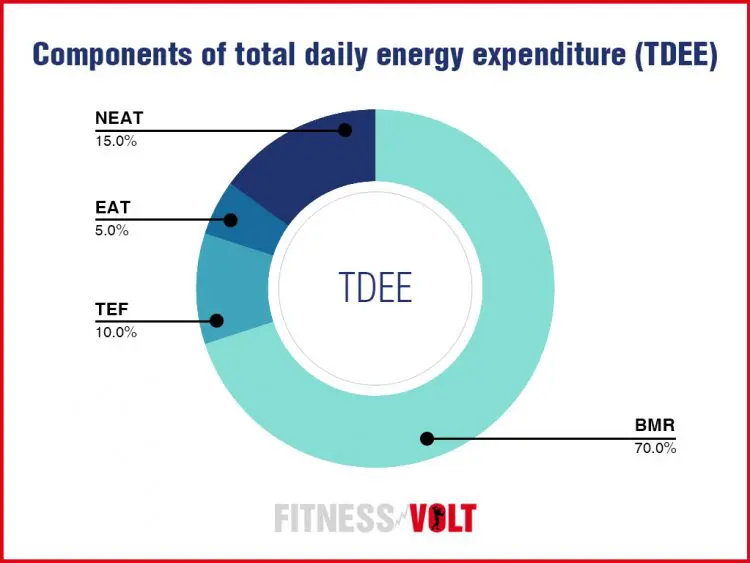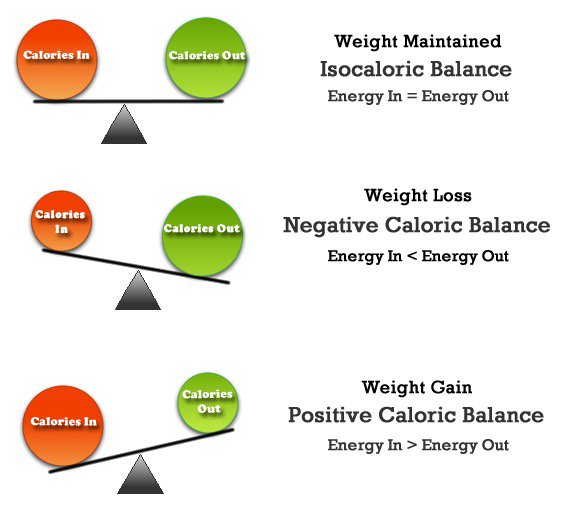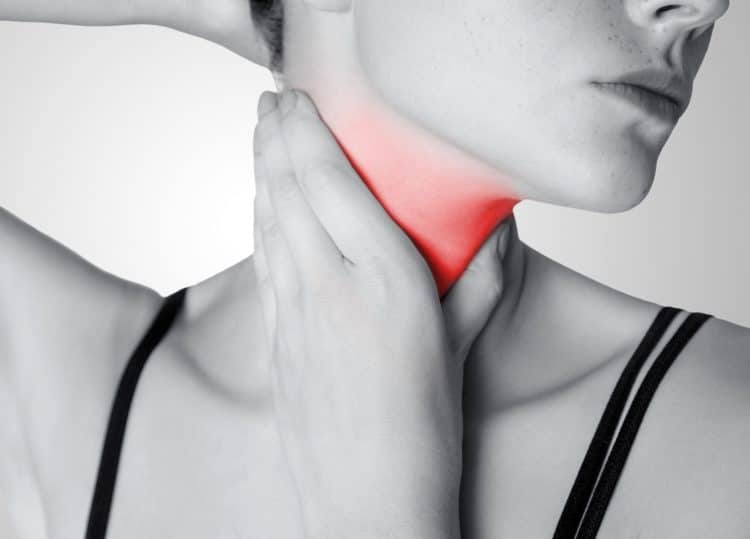A large and growing percentage of the world’s population is overweight or obese. Lack of physical activity, poor food choices, easy access to junk food, genetics, and socioeconomics are all to blame for the obesity epidemic.
However, for some people, being overweight is NOT the issue. Instead, they find it hard to gain weight. Unlike being overweight, being underweight less likely to cause health problems. That said, there are some risks associated with being very skinny, including (1):
- Lowered immune system
- Increased risk of osteoporosis
- Malnutrition
- Fertility issues
- Dementia
- Sarcopenia (muscle wasting)
- Increased risk of premature death
Being underweight and also be a source of stress and unhappiness.
There is a saying in Hollywood; you can never be too rich or too thin. While more money is rarely a bad thing, you can definitely be too skinny. Being underweight comes with a stigma, and thin people are often viewed as physically weak or even a little unwell.
Just think about Steve Rogers before he got his super-soldier serum and morphed into Captain America. Given a choice, a lot of thin people would prefer to be more shapely.
In this article, we explain why you’re not gaining weight and what you can do about it.
Are you underweight? Find out with our BMI calculator.
The REAL Reason You Aren’t Gaining Weight
There are lots of reasons people THINK they can’t gain weight. They cling to these reasons as a drowning man holds onto a life raft.
These reasons include:
- Not using the right supplements
- Not following the right diet
- Having lousy “hard gainer” genetics
- Not following the right workout plan
- A fast metabolism
- Ectomorphic body type
While all of these factors CAN have an impact on weight gain, they are not the main reason you can’t gain weight.
Instead, the REAL reason you aren’t gaining weight is you are not consuming enough calories. To gain weight, you need a calorie surplus. No surplus means no weight gain, no matter what supplements you use or workouts you follow.
Here’s why…
Your body uses calories for energy. The number of calories you use per day is called your Total Daily Energy Expenditure, or TDEE for short. Your TDEE is made up of several components.

The first is your Basal Metabolic Rate or BMR. This is the number of calories your body uses at rest and in a fasted state per 24 hours.
Next is your TEA, which is the Thermal Effect of Activity. This is the number of calories you use during planned and unplanned physical activity, e.g., exercise or walking to work. This is sometimes divided into NEAT(Non-Exercise Activity Thermogenesis) and EAT(Exercise Activity Thermogenesis).
Finally, there’s the Thermal Effect of Food or TEF. Eating causes a slight rise in your metabolic rate. This means ingesting, processing, digesting, and eliminating food uses calories, albeit in relatively small amounts.
When you add your BMR, TEA, and TEF together, the end result is your TDEE (2).
Find out your TDEE with our TDEE Calculator
If your calorie intake (food, beverages, supplements) is equal to your TDEE, your weight will stay the same. But, if you eat fewer calories than your TDEE, creating a calorie deficit, your body will burn fat to make up the energy shortfall. This will result in weight loss.
So, to gain weight, you MUST consume more calories than your TDEE. This results in a calorie surplus. Faced with this glut of energy, your body will take those excess calories and turn them into fat. Fat is simply stored unused calories. If you combine a calorie surplus with intense strength training, some of those calories will fuel muscle growth, too.
Consume enough extra calories, and you will gain weight. This is the first law of thermodynamics, which states that energy can neither be created nor destroyed; energy can only be transferred or changed from one form to another.
In this instance, unused energy from food is converted into and stored as fat. If you went from a calorie surplus to a calorie deficit, that fat energy would be used to fuel your body.
Summary
If you want to gain weight, you must consume more calories than your TDEE. It doesn’t matter where those calories come from or what workouts you do. If there is no surplus, you won’t gain weight.
Other Factors Affecting Weight Gain
So, providing you are eating enough, you should gain weight. But, a lot of people are convinced they’re eating “thousands and thousands” of calories and still can’t gain an ounce.
Are they exempt from the first law of thermodynamics? Is their metabolism so fast that they’re burning an abnormally high number of calories? Do they have “hollow legs and a bottomless stomach?”
Probably not.
Here are more reasons you aren’t gaining weight!
1. You REALLY aren’t eating enough!
While you might think you are eating a lot of food, you may still be operating with a calorie deficit. A lot of naturally skinny people have underdeveloped appetites and feel full after a few mouthfuls of food. As such, they think they’re eating a lot of chow but, really, are barely eating enough to maintain their weight, let alone increase it.
The only way to make sure you are eating enough is to a) calculate your TDEE, b) add 300-500 calories, and c) make sure you consume that number of calories every day. Still not gaining weight? Add another 300-500 calories per day to your food and beverage intake.
Invariably, this will mean weighing, measuring, and tracking your food intake to make sure you are consuming enough calories.
Easy ways to increase your calorie intake include:
- Drink a weight gainer shake 1-2 times per day
- Add 1-2 peanut butter sandwiches to your usual food intake
- Have a large glass of milk with every meal
- Double the size of your snacks
- Add more high-calorie condiments to your meals
- Add dessert to your main meals
- Consume a couple of tablespoons of coconut or olive oil between meals (both come in at about 115 calories per tbsp.)
Check also weight gain calculator.
2. You’re eating too clean
Clean foods are usually natural, unprocessed, and healthy, and often low in calories too. They’re also high in fiber, and that makes them very filling. While clean foods are perfect for weight loss, they’re not ideal for weight gain, especially if you don’t have much of an appetite and tend to feel full quickly.
If you are struggling to gain weight, you may need to supplement your diet with a few high-calorie “less clean” foods to make hitting your TDEE + 500 calories target somewhat easier.
This means things like full-fat dairy instead of fat-free, fattier cuts of red meat instead of super-lean chicken and turkey, the occasional pizza or hamburger instead of salads and vegetables, or ice cream instead of yogurt in your smoothies.
Trying to gain weight isn’t a license to eat loads of junk food; the bulk of your diet should still be nutritious and healthy. But, if you are struggling to consume enough calories, a few less healthy foods may make reaching your calorie intake goal easier.
3. You’re being inconsistent
So, your TDEE is 2,000 calories, and you’ve eaten 3,000 today; well done! But, what about tomorrow, the next day, and the day after that? The only way to gain weight is to keep consuming more calories than you need. Consistency is king.
Gaining weight requires a long-term commitment, and it could take you months to reach your target.
Make things as easy as possible by buying and prepping food in advance and always knowing what you’re going to eat and when. Also, carry food with you so that you are less likely to miss meals. If you find it hard to gain weight, even one missed meal could undermine your progress.
If you don’t think you can be consistent, maybe because you don’t have time for grocery shopping or cooking, or don’t have the budget to buy all the food you’ll need to gain weight, it may be better to put off starting until circumstances are more favorable.
4. You are doing too much physical activity and exercise
Even if you are eating a lot, your calorie intake could still be equal to or even less than your TDEE if you are very physically active. All forms of physical exercise burn calories, including structured workouts and things like manual labor and gardening.
If you have a very active lifestyle, you’ll need to eat even more to offset your calorie expenditure. Or, if you really can’t face eating more calories, you may need to reduce your levels of physical activity.
Many naturally skinny people are also very active and are constantly “on the go,” so you may find it hard to slow down and spend more time being sedentary. But, if you are eating as much as you can and still aren’t gaining weight, that’s might be what you have to do.
You certainly don’t need to be doing a ton of cardio if gaining weight is your goal. Instead, focus more on strength training, which, when combined with a calorie surplus, should lead to increases in muscle size as well as bodyweight.
5. You aren’t lifting weights
If you are serious about gaining weight, it’s time to get serious about strength training too. Faced with a calorie surplus, your body will convert those extra calories into body fat. While skinny people can often stand to gain at least some fat, too much can be problematic from both a health and aesthetic point of view.
Strength training means some of your extra calories will go to increasing muscle size. Don’t worry; you’ll still gain weight, but some of that weight will be in the form of increased muscle mass. This is both healthier and will enhance your body shape.
Not sure where to start? Check out our library of bodybuilding, powerlifting, and weightlifting workouts here!
6. Digestive issues
Your digestive system plays a crucial role in your ability to process and absorb the food you eat. Issues with digestion could mean that some of the food you eat fails to have the desired effect on your body.
For example, if you have problems with wheat (gluten) or dairy (lactose), you may not absorb the nutrients in those foods, no matter how much you eat. Food intolerances and allergies could also upset your stomach, derailing your diet in other ways.
If you have an adverse reaction to any food group, you should probably eliminate it from your diet. If you experience less bloating, fewer stomach upsets, and better bowel movements, it’s a safe bet that your digestive system is working better than it was before.
Consider adding pro and prebiotics and digestive enzymes to your diet. These supplements may give your digestive health a boost. If you are still concerned, get some advice from your doctor.
7. Too much stress
Stress can have an adverse effect on your digestive system. When stressed, cortisol levels increase, leading to a rise in metabolic rate, and blood is diverted away from your digestive system and toward your muscles. This interferes with digestion and nutrient absorption.
In addition, in some instances, stress can stop you from feeling hungry, increasing the chances that you won’t eat enough to create the calorie surplus you need to gain weight. Of course, some people are stress eaters and eat for comfort, so that doesn’t apply to everyone.
Some people suffering stress also twitch, fidget, and are more restless than those that are calm and relaxed. While this won’t have a significant impact on your TDEE, if you are struggling to gain weight, it could be enough to limit your progress.
Interestingly, ectomorphs, the naturally skinny body type, were first identified as being of a nervous disposition. There is definitely a link between your psychological state and your body shape.
Body Type Quiz: Find Your Body Type Endomorph, Ectomorph, or Mesomorph?
If you know you are a high-stress person and suspect it could be interfering with your desire to lose weight, look for ways to lower your stress levels, such as meditation, breathing exercises, or therapy.
8. Hormones
There are several hormones that affect your ability to gain and lose weight.
Thyroid hormone – produced by a butterfly-shaped gland in your throat, this hormone regulates your metabolism. If you have an overactive thyroid (hyperthyroidism), your metabolism will “run hot,” making it harder to gain weight.
Hyperthyroidism is a medically recognized, highly treatable condition. So, if you suspect your thyroid hormone levels are higher than they ought to be, you should consult your doctor.
Signs and symptoms include of hyperthyroidism include:
- A raised, itchy rash (hives)
- A swelling in your neck caused by an enlarged thyroid gland (goiter)
- An irregular and/or unusually fast heart rate (palpitations)
- Diarrhea
- Difficulty sleeping
- Eye problems, such as redness, dryness, or impaired vision
- Feeling tired all the time
- Hyperactivity – you may find it hard to stay still and have a lot of nervous energy
- Loose nails
- Loss of interest in sex
- Mood swings
- Muscle weakness
- Needing to urinate more often than usual
- Nervousness, anxiety, and irritability
- Patchy hair loss or thinning
- Persistent thirst
- Red palms
- Increased sensitivity to heat
- Twitching or trembling
- Warm skin and excessive sweating
Leptin – this hormone is produced by your fat cells. It helps regulate your appetite. Elevated leptin levels could mean you don’t feel hungry, making it harder to eat enough food to gain weight.
Ghrelin – this is leptin’s antagonist. It increases your appetite. If levels are low, you won’t feel hungry, leading to less hunger and a tendency not to consume sufficient calories.
Elevated levels of leptin and low levels of ghrelin are predominately genetic. They are common in naturally slim people. If you don’t feel hungry, you may find it easier to consume some of your calories in liquid form, i.e., weight gainer shakes, as fluids tend to be less filling than solids.
9. An underlying medical condition
If, after checking that you are consuming a surplus of calories and are following the rest of the advice in this article, you are STILL unable to gain weight, there may be an underlying medical reason.
Possible issues include:
- Type 1 diabetes
- Inflammatory bowel diseases, including Crohn’s disease, celiac disease, and ulcers
- Eating disorders
- Infections and fever
- Certain cancers
- Certain medications and treatments, such as antibiotics and chemotherapy
Consult your doctor if you suspect there is another reason that you aren’t gaining weight.
Why Am I Not Gaining Weight? Wrapping Up
In terms of body composition, being overweight is generally more dangerous than being underweight. But, if you are naturally skinny and have a hard time packing on the pounds, being underweight can also be distressing. And, contrary to popular opinion, there are some health risks associated with being underweight too.
On the surface, at least, the solution to gaining weight is pretty simple – you just have to eat more. Without a calorie surplus, gaining weight is impossible. That said, many naturally skinny people struggle to eat enough, usually because they have a high TDEE or a small appetite.
While gaining weight can be challenging, most people should be able to add a significant number of pounds to their slender frames. However, it will probably mean making some major dietary changes and even eating when you aren’t hungry.
If you are serious about gaining weight, it’s time to calculate your TDEE and add 300-500 to create a surplus. Then, start tracking your calorie intake to make sure you hit that target each and every day. Still not gaining weight? You need to eat more, even if a few of your meals are high-calorie and somewhat unhealthy. As well as eating more, you may also need to reduce your calorie expenditure.
It WILL take time and effort bit you CAN gain weight.
References:
1 – PubMed: Underweight, overweight and obesity as risk factors for mortality and hospitalization https://pubmed.ncbi.nlm.nih.gov/18519281/
2 – Journal of The International Society of Sports Nutrition– Components of Total Daily Energy Expenditure https://jissn.biomedcentral.com/articles/10.1186/s12970-017-0174-y/tables/3



















